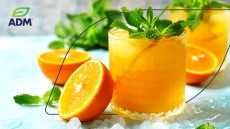Mothers' salt & sugar intake effects offspring long-term (but is gender specific): Study

Researchers at the University of Nottingham found that the mothers’ diet affected their offspring’s cardiovascular function, with salt having a greater effect on males and sugar on female offspring.
Rats were fed a high salt diet (SD) and/or fructose diet (FD) before and during pregnancy and for the duration of lactation. The cardiovascular health and sensitivity of their offspring was assessed, which also included the response to anxiety related isolation. The offspring’s hearts were studied after euthanising them to assess cardiac function.
Following a maternal SD the male offspring became hypertensive and conversely the females became hypotensive. The researchers commented that previous studies had identified oestrogen as a ‘pro-survival factor’ in females mitigating a nutritionally poor environment until concentrations decline in later years.
The researchers said in their discussion: “Two independent sex-specific phenotypes emerge that are retained despite no significant consumption of salt or fructose postnatally; maternal salt loading has distinct and marked hypertensive effects on male offspring, and maternal fructose loading appears to have greater cardiovascular effects on female offspring. Importantly, for fructose in particular, these effects in the female offspring are exacerbated by further fructose intake, as would naturally occur in human populations.”
Implications
Circadian analysis showed that with maternal FD there was a significant blunted ‘non-dipping’ nocturnal pattern which the authors said has previously been identified as a risk factor for later cardiovascular disease.
Asked about implications of this study for humans and further research, corresponding author David Gardner told FoodNavigator: “Salt intake is certainly a no no. My feeling is that it is likely worse at a time when coincides with brain development (postnatal in rat) ie through maternal milk. This would be prenatal in human and thus the placenta is a real good barrier. I think isolating the sex-specific responses are most interesting and the timing of that.”
The authors said that the results show marked implications for non-communicable diseases in Western societies. “Continued intake of refined, low nutritional-quality diets in the next generation, following maternal over-consumption, has the potential to vertically transmit adverse health outcomes through generations. Reversal of this trend is going to require preventative action before birth, and as a result it will also take generations to effect a response.”
Source: British Journal of Nutrition
Published online ahead of print, doi:10.1017/S0007114515004936
“Excess maternal salt or fructose intake programmes sex-specific, stress- and fructose-sensitive hypertension in the offspring”
Authors: C. Gray, S.M. Gardiner, M. Elmes and D.S. Gardner




























